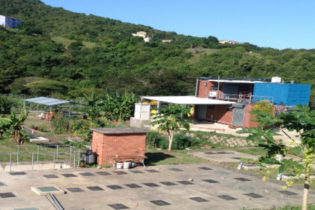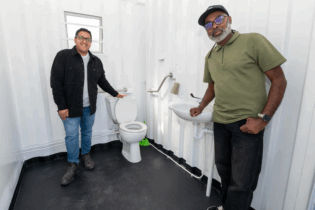Toilets that use microwave energy to transform human waste into electricity. Another captures urine and uses it for flushing. And still another turns excrement into charcoal. These aren’t your typical loos – they are part of a Bill & Melinda Gates Foundation competition to reinvent the toilet for the 2.5 billion people around the world who don’t have access to modern sanitation. Scientists from around the world have taken up the challenge, and the foundation announced some projects Tuesday that will be getting more money to take their ideas from the lab to cities. There, local entrepreneurs will use the new technology to turn pollution into cash. “We couldn’t be happier with the response that we’ve gotten,” Bill Gates said. To pass the foundation’s threshold for the world’s next toilet, it must operate without running water, electricity or a septic system, not discharge pollutants, preferably capture energy or other resources, and operate at a cost of 5 cents a day. The United Nations estimates disease caused by unsafe sanitation results in about half the hospitalisations in the developing world. About 1.5 million children die each year from diarrheal disease. Scientists believe most of these deaths could be prevented with proper sanitation, along with safe drinking water and improved hygiene. The foundation expects to field test its first prototypes within the next three years. Most of the prototypes on display in the open courtyard of the foundation’s Seattle headquarters turn solid waste into energy. This is both a practical and pragmatic solution to the solid waste puzzle, said Carl Hensman, programme officer for the foundation’s water, sanitation and hygiene team. Many recycle waste into other usable substances such as animal feed, water for irrigation, or even just energy and water to run their own systems. Some, like the winning project from Caltech, use chemistry and engineering to completely transform the waste.
Clement Cid, a Caltech grad student from Trouillas, France, said it has been intellectually rewarding to work with scientists from a variety of specialties. “You can come up with great ideas,” he said, adding that the toilet fair offered more opportunities for idea sharing. Reinventing the toilet has the potential to improve lives as well as the environment. Flush toilets waste tons of potable drinking water each year, fail to recapture reusable resources like the potential energy in solid waste and are simply impractical in so many places. Gates predicted the result of this project would reach beyond the developing world. “If we do it right, there’s every possibility that some of these designs would also be solutions for rich and middle-income countries,” Gates said.







